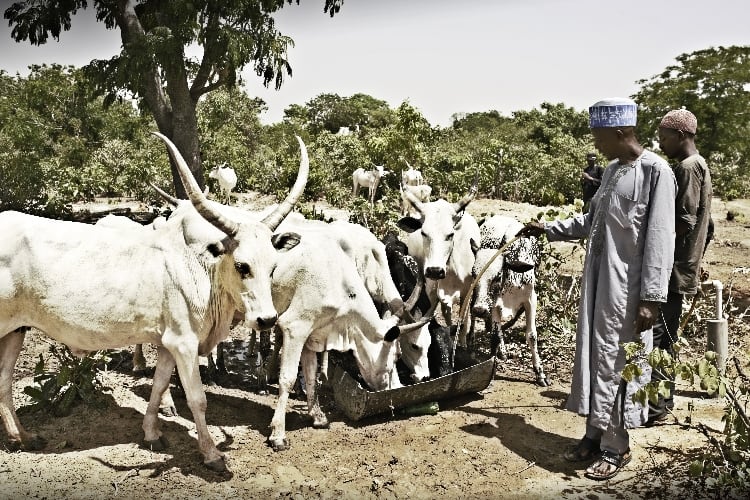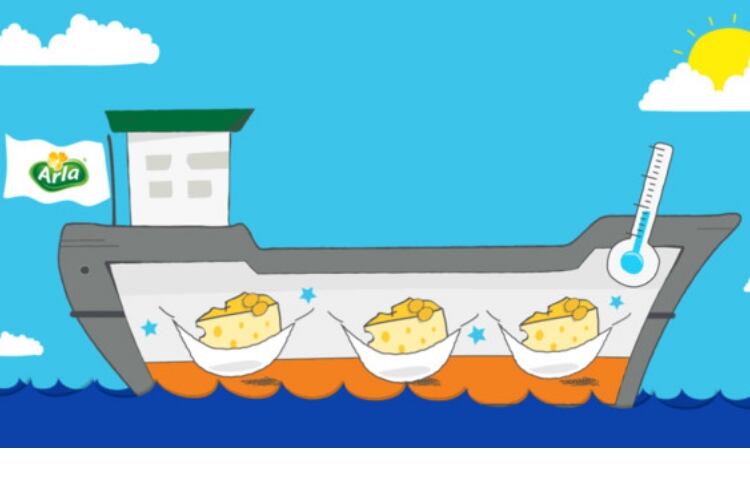Already active in existing development projects within the Nigerian dairy industry, Arla is now engaging further by signing a new Memorandum of Understanding with Kaduna State and the Nigerian government.
The State and the Government will offer 1,000 nomadic dairy farmers permanent farm lands with access to water, with Arla becoming the commercial partner that will purchase, collect, process and bring the local milk to market.
Nigeria’s population – set to reach close to 400m by 2050 – is among the fastest-growing of any nation in the world, and there is a growing consumer demand for affordable nutrition in the country. The new public-private partnership entered into by Arla is the first of its size in Nigeria and is part of Arla’s business strategy to meet consumer demand in Nigeria through a balance between development of the local dairy sector and imported milk and dairy products.
Tim Ørting Jørgensen, executive vice president and head of Arla Foods International, said, “With demand for nutritional dairy products increasing amongst Nigeria’s fast-growing population, there is a clear opportunity and need to support the development of the local dairy industry to help meet this demand.
“As a company with a history of successful collaboration on local dairy development projects and a long-term commitment to our Nigerian consumers, customers and partners, we are delighted about this new partnership, because it will make a real difference in many farmers’ businesses and lives.”
Public and private investments
Kaduna State and the Nigerian Government are committing to improve the structural conditions for the nomadic farmers. Instead of continuously moving in search of grazing areas and water, land will be set up for the farmers to permanently base themselves and have opportunities to expand their farms. Securing the infrastructure such as roads, power and water, which are necessary to process and bring the milk to market, is also part of the commitment.
The project will primarily be funded by loans provided by the Central Bank of Nigeria and guaranteed by the local state. As the commercial partner, Arla will invest in establishing milk collection centers.
The partnership in Nigeria builds on a collaboration initiated in 2016 with Kaduna State, the Nigerian Government, the NGO Care, the Danish Agricultural and Food Council, the local cooperative MILCOPAL and the Nigerian pastoralist organization Coret.
The partnership is working on a five-year project, the Milky Way Partnership Nigeria, to develop a socially, environmentally and economically sustainable dairy value chain.
As an example, the Amana Dairy Cooperative, on the outskirts of Kaduna, now has steady access to water and a milking parlor has been installed to ensure that the milk is cooled down immediately after milking to preserve quality.
‘Looking long term’
The Nigerian dairy industry is currently able to supply less than 10% of the country’s current demand for dairy products, a gap that is increasing exponentially as the population grows.
Most Nigerian dairy farmers are small scale and most milk collection consists of milking the cows by hand into small open bowls or buckets. If the milk is not consumed in the farmer’s own household, it usually doesn’t travel farther than the nearest town market. Preventing the milk from spoiling in the heat is a big challenge.
“Bringing local milk into our product portfolio is part of the way we believe that our business will be long-term successful in Nigeria. We will only succeed in growing local farmers’ incomes, Nigeria’s dairy sector and achieving Arla’s ambitions in West Africa if the project and its activities are commercially viable. This is a great example of business and development going hand in hand to ensure long-term sustainable solutions that are built to last,” Jørgensen said.




